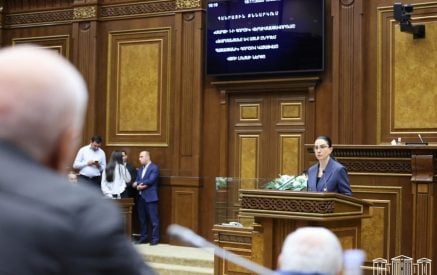They usually single out the part about “two natives of Karabakh” from Robert Kocharyan’s interview, on which the commentaries and analyses are based on as a rule. There is no
denying, the formulation is not good, but its meaning was political, rather than “provincial-nepotistic.” A struggle between the second and third presidents would mean a split in the same source, the same administrative and financial resource. It is theoretically possible, but in a normal, “classic” situation, that resource can serve either one or another, i.e. the “joint” candidate of the government. I think that’s what the second president was trying to say.
Two other reasons given by the second president are comparably less talked about. “I didn’t want to participate in forming a very unpleasant format of a struggle between the three presidents, which I am sure is harmful for the country.” “A search for political compromise has turned into political retail in Armenia.” If we disregard for a moment who says that, those judgments are absolutely right and praiseworthy in themselves. Particularly, the really unpleasant format of the “three presidents” suggests that they should say bad things about each other, and their statements create a standard for other citizens, regardless of whether those citizens hate or like the current and former presidents. However, that format, which is harmful for the state, started immediately after the change of power in 1998 when Kocharyan’s propagandists started to talk about the “former regime,” “revanchism” and stuff like that, mentioning the first president in that context. When Ter-Petrossian returned to politics in September 2007, the mentioned format became complete. It seems to me that all those who can influence society’s opinion should show some delicacy when they talk about the former presidents – surely criticizing their mistakes – and the latter should not engage in “close combat” with anyone, particularly with each other, in order that society doesn’t figuratively see their “bruises.” Scenes don’t make citizens respect the state more.
As for “retail” in politics, which is sometimes called realpolitik, it is an unpleasant thing too. However, frankly speaking, I would sometimes prefer that there was that bargaining. For example, in February 2008 or even earlier. It would be better, if the government was engaged in political bargaining, negotiated, bargained, rather than “firmly” decided to shoot people.
Read also
ARAM ABRAHAMYAN






















































